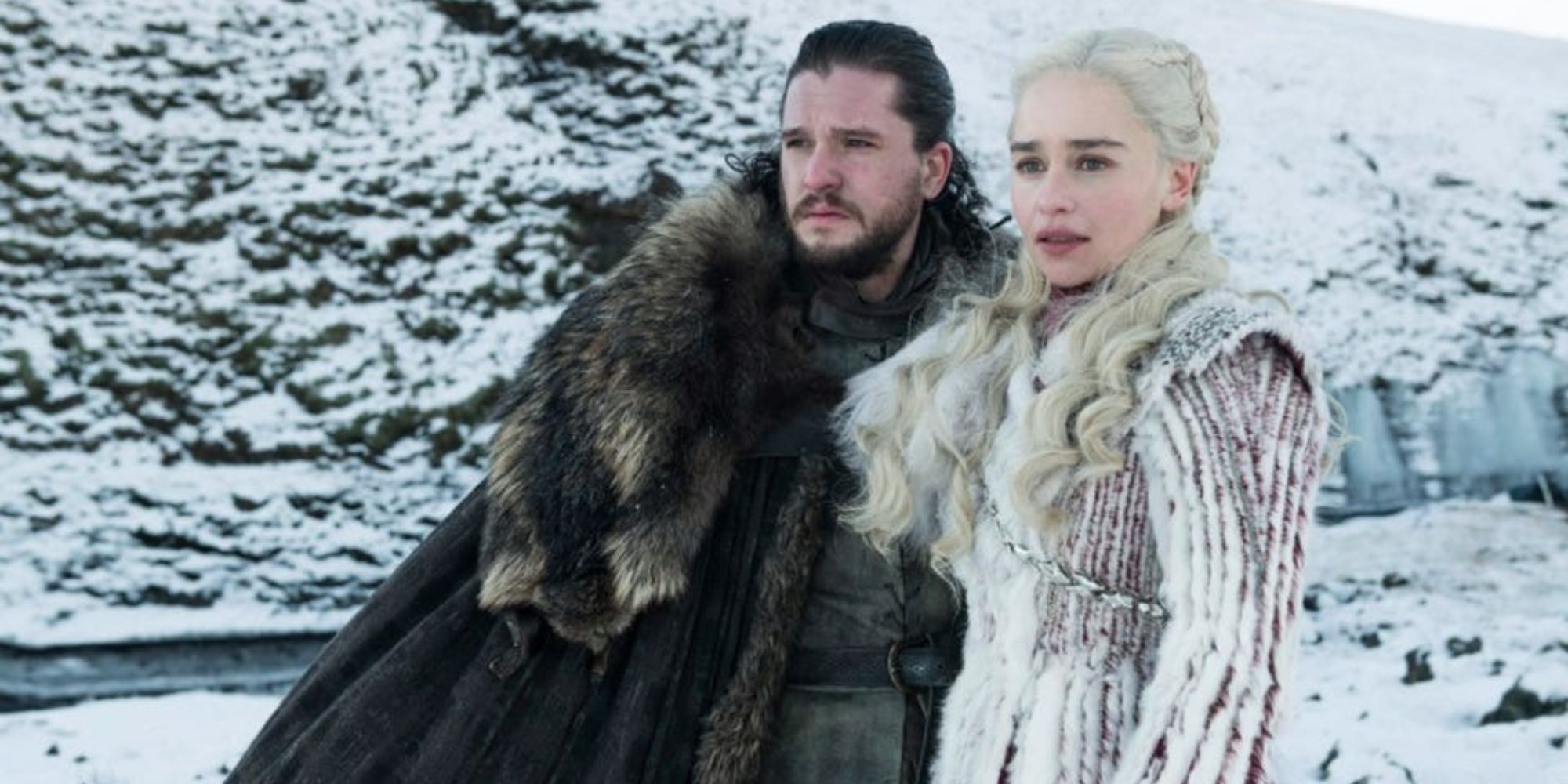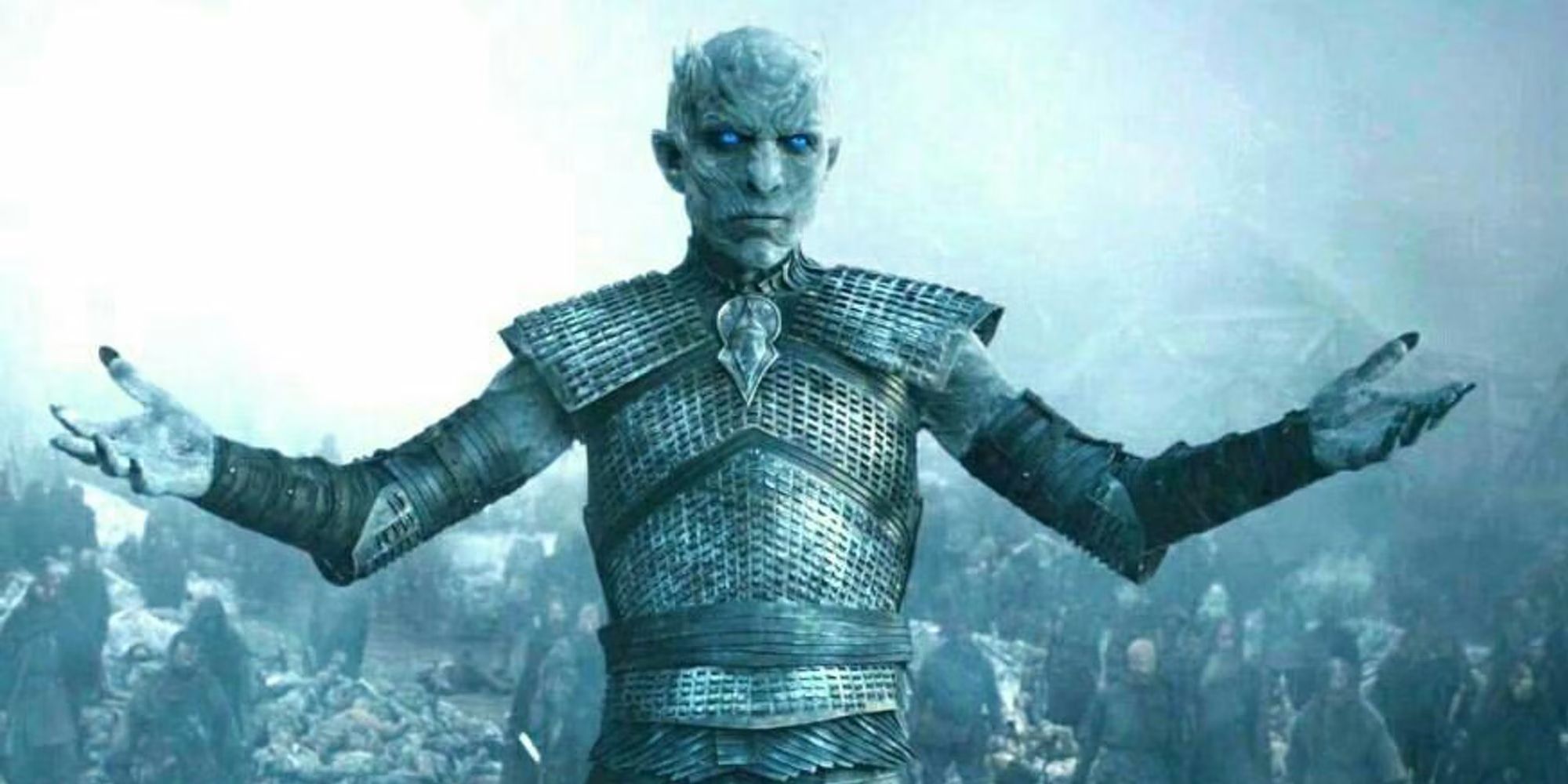The Big Picture
- Adapting an unfinished book series like Game of Thrones is a daunting task, which eventually led to some cracks in the storytelling.
- Game of Thrones Season 5 sacrificed important subplots and character development, resulting in a less compelling narrative.
- Despite its flaws, the fifth season still had standout moments and showcased the show’s ability to create original storylines.
For nearly an entire decade, Game of Thrones dominated popular culture, and for good reason. With its fantastic world-building, complex characters, and unpredictable stakes, the series captivated audiences across the globe, even while facing the daunting challenge of continuing a story that is not yet complete. Adapting such a large and unfinished book series is no small feat, but it remains almost inevitable that when faced with such a steep hill to climb, cracks will eventually start to show.
Looking back, perhaps nowhere is that observation clearer in Game of Thrones than during its fifth season, the first to surpass the timeline of the books and disavow large portions of what had already been created, for better and for worse.
Game Of Thrones
Nine noble families fight for control over the lands of Westeros, while an ancient enemy returns after being dormant for millennia.
- Release Date
- April 17, 2011
- Cast
- Nikolaj Coster-Waldau, Liam Cunningham, Maisie Williams, Gwendoline Christie, Rory McCann, Isaac Hempstead-Wright, Conleth Hill, John Bradley
- Main Genre
- Drama
- Seasons
- 8
- Creator
- David Benioff, D.B. Weiss
‘Game of Thrones’ Was Always in a Race Against Time
For the first four seasons, Game of Thrones arguably faced little true hardship. After all, they were adapting three books that had been widely acclaimed in the decades since they had been released and even the sheer size of the third book could be split in half with relative ease, given that the Red Wedding happens near the midway point of the story. In some cases, the lack of a POV structure allowed for more expansion of characters than a traditional novel would allow — something George R. R. Martin himself has happily admitted. However, the two recent books were another matter.
By the time of the fifth season, the writers found themselves left with two concurrent books separated by geographic location, a pair literally too big to even be published, and one without an easy cutoff point or even an ending. To make things even worse, both A Feast for Crows and A Dance With Dragons embrace many of the more fantastical elements of the storyline, which the showrunners, David Benioff and D.B. Weiss feared could excite book readers but alienate general television audiences. Consequently, they were faced with two controversial books, one of which was not even finished when the show first started, from an unfinished series and plotlines with no resolution in sight. The underlying tension of waiting for The Winds of Winter, the sixth book that still has yet to hit store shelves, to be released before the show finally caught up with the timeline of the novels left the creative team facing an incoming car crash with no way to stop it, something that no television writer should have to experience.
In Season 5, Subplots Are Subdivided and Sacrificed to Their Detriment
Understandably, the show decided to cut out many of these storylines entirely and merge some with others, but this did not come without cost. One prominent example is from the very first episode, which features the execution of Mance Raydor. In the fifth book, his death is faked with magic, and he is sent on a mission to rescue a girl in Winterfell who Jon falsely believes is Arya, breaking his vow of neutrality to the Night’s Watch in the process. By simply killing Mance instead, removing this subplot, and replacing the kidnapped girl with Sansa, the show not only misses a chance to discuss important themes of duty conflicting with love but also sacrifices the development of a strong female character by regressing her back into a victim. Additionally, it also blunts the motivation for the killing of Jon Snow in the season finale, reducing a valid fear of breaking his oath when Mance is captured and his plot is exposed to simple prejudice over his alliance with the Wildlings. To its credit, the show attempts to replicate such a thematic dilemma by having Brienne of Tarth remain conflicted over her shared duty to avenge Renly or rescue Sansa, but forcing Jon to make that decision instead would have made for a more interesting source of drama by setting up his later downfall.
This pattern of abruptly disrupting character arcs or simplifying morally gray decisions was not exclusive to the storyline in the North. More notably, it can be seen in the Dorne subplot, but beyond Westeros, it can also be seen in Meereen, where Daenerys is faced with an extremely complex and frustrating local political situation and where multiple subplots interconnect in the books. Cutting out these plotlines, which remain either intentionally anticlimactic or remain unfinished, might have been the right decision in terms of pacing, but also creates drawbacks for major characters. In some cases, like Tyrion, they are reduced from complicated and darkened characters to simple archetypes with little to do. In others, like Ser Barristan Selmy, they are simply killed off prematurely, much to the disappointment of the actor playing him, Ian McElhinney. Finally and perhaps most frustratingly, reducing the slavery subplot to a straightforward story about the resistance of their owners and or a surprisingly complex character like Doran Martell into a mere footnote renders both stories almost shockingly uneventful for a series that constantly thrives on drama.
Even at Its Worst, ‘Game of Thrones’ Can Still Be Great
This is not to say that some of the stories David Benioff and D.B. Weiss came up with are worth totally dismissing, however. Two great highlights of the fifth season can be found, one long-term and one short-term, but each fantastically original. The Sparrow subplot, featuring a great performance by Jonathan Pryce, still captures the arrogance of Cersei as a ruler, brings minor plot points from earlier seasons back in a major way, and features genuine political intrigue with Margaery and Tommen. By recreating the famous Walk of Shame from the book in the season finale, we are somehow even left feeling sympathy for Cersei, if only briefly.
With the massacre at Hardhome, an event only implied in the books, we get a battle arguably bigger and better than the fight in the slave pits during the ninth episode, along with a great monologue by Jon before the onslaught begins. The sheer scale of the event not only serves as an important reminder of the presence of the White Walkers and the threat they face but also gives us our first introduction to the Night King, who inspires terror in his silence. Even the less enjoyable subplots still have great moments, without input from the books. The final conversation between Jaime and Myrcella just before her sudden death is a beautiful moment of parental connection and the “Break the Wheel” monologue by Daenerys still remains one of her most iconic moments.
Overall, Game of Thrones Season 5 is a rare example of a show ironically being hampered, not enhanced, by the source material. Faced with major logistical difficulties no writer should envy, the show does everything it can to condense them, all while preserving essential themes and the loyalty of its core audience, but does not always succeed. For these reasons, many of which are not its own fault, the fifth season is a far cry from the incredible four that came before it and even some that later followed. That being said, enough quality remains that it can be worth the watch and still earn its place as a good, if not great, season of television.
Game of Thrones is available to stream on Max in the U.S.
Denial of responsibility! TechCodex is an automatic aggregator of the all world’s media. In each content, the hyperlink to the primary source is specified. All trademarks belong to their rightful owners, and all materials to their authors. For any complaint, please reach us at – [email protected]. We will take necessary action within 24 hours.
Khushi Patel is a science fiction author who lives in Austin, Texas. She has published three novels, and her work has been praised for its originality and imagination. Khushi is a graduate of Rice University, and she has worked as a software engineer. She is a member of the Science Fiction Writers of America, and her books have been nominated for several awards.




